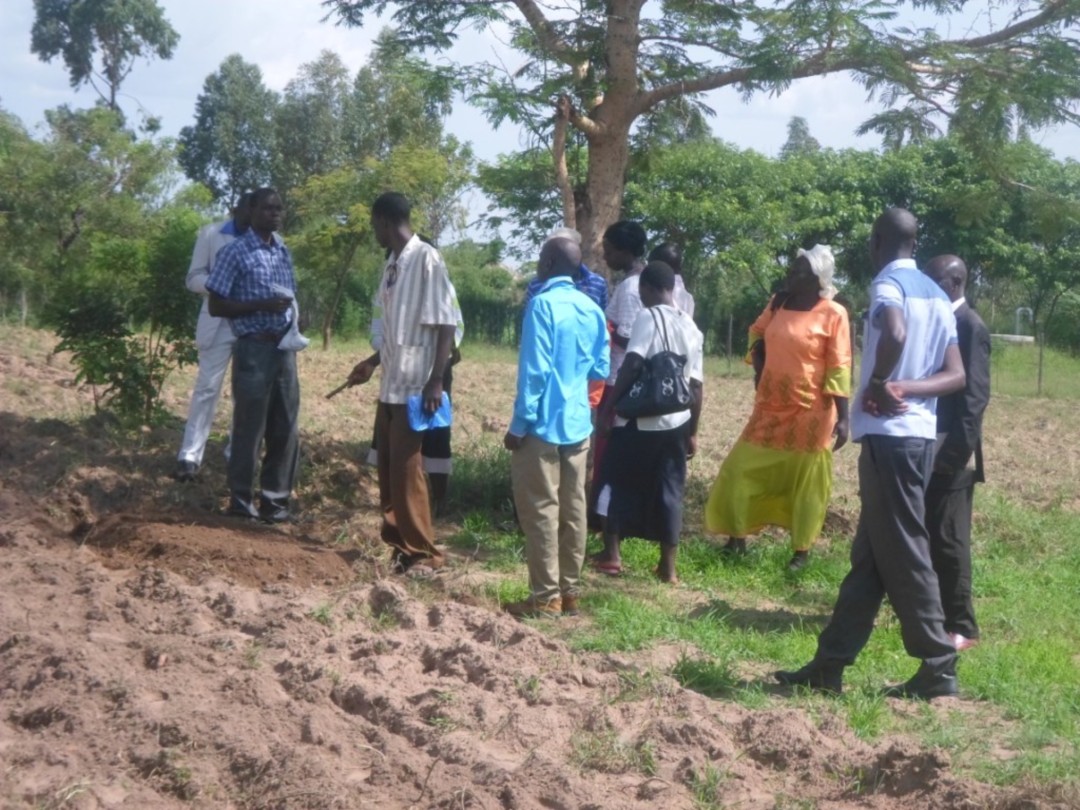Training in sustainable agriculture and nutrition
The project aimed to improve the food, nutritional and economic security of 1,200 women, 4,800 members of their households and 15,600 of their wider community. To achieve this, it planned to train 60 women’s community groups in improved agriculture and nutrition practices. This aimed to provide households, orphans, vulnerable children and people living with AIDS with a sustainable source of nutritious food. These groups were also to be trained in the business skills needed to develop nutrition-based enterprises, in order to provide regular food to their households and manage the necessary sale of the surplus.
At the end of the project, 60 women’s groups (1,884 community members and a further 7,336 members of their household) were trained in sustainable agriculture, nutrition and income generating activities. An additional 20,437 of the wider community were reached through nutritional awareness events and forums, exceeding the original beneficiary target. Women’s group members successfully established individual kitchen gardens and also group gardens. Community members reached food security, improved their nutrition and increased their income thanks to the consumption and sale of highly nutritious crops from the gardens and produce from small animal husbandry established thanks to start-up goats and poultry provided by Ace Africa. The increased food and economic security of the community members supported the healthy development of children, improved the health of people living with AIDS and enabled parents to send their children to school thanks to their additional income.
Ace Africa was founded in 2003 by Joanna Waddington, Augustine Wasonga and Anthony Okoti. Originally a community-based organisation, Ace Africa is now a registered charity in the UK. It aims to empower children in their communities in rural areas of Kenya and Tanzania, to achieve sustainable, fulfilling and independent lives through improved food and economic security, health, well-being and rights awareness.
News
Type
Health / Education / Environment / Community DevelopmentDuration
January 2014 - December 2016Location
Bungoma / KenyaWith whom
Ace Africa
Website





Kenya
Population
49.7 million (2017)
Per Capita Income
USD 1,460/year (2017)
Poverty rate *
36% (2015)
Literacy rate
79% (2016)
Human Development Index
142nd out of 189 countries (2018)
Kenya’s macro-economic conditions have progressed over the past decade, improving the welfare of its population. However, a quarter of its population lives in urban informal settlements, arid and semi-arid rural areas and remain vulnerable to poverty, conflict, structural underdevelopment and disease. Even though national absolute poverty has declined overall, it remains high compared with neighbouring countries. Primary school enrolment has reached 100%. Access to household services such as electricity, improved drinking water and sanitation has steadily increased, even though coverage remains low (23%, 47% and 33% respectively). Youth unemployment and vulnerability to climate change remain key challenges.
Sources: World Food Program, UNICEF, World Bank, 2016 Human Development Report, Human Development Indices and Indicators (2018 Statistical Update)
*The percentage of the population living below the national poverty line.